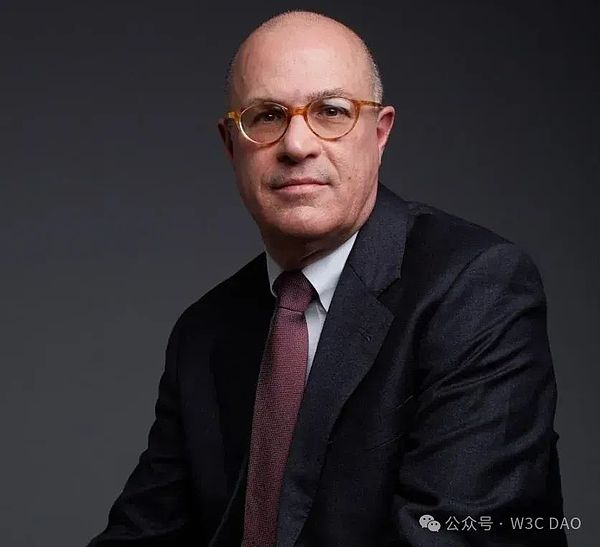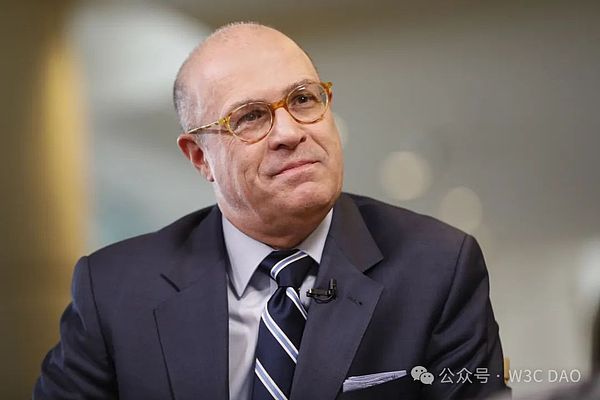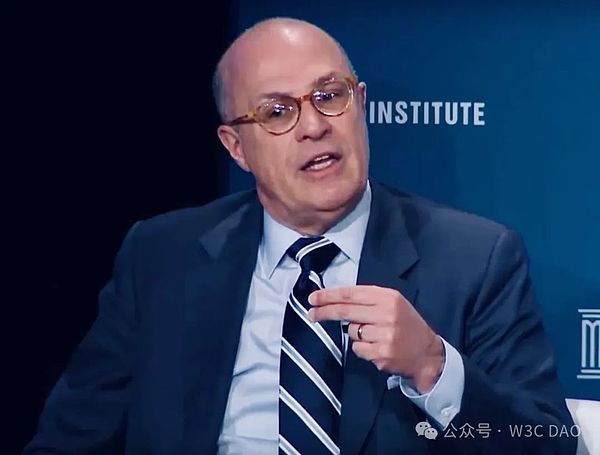Original author: Steven Ehrlich, original source: Forbes

Christopher Giancarlo served as the 13th Chairman of the U.S. Commodity Futures Trading Commission (CFTC). He is also a member of the U.S. Financial Stability Oversight Council, the President's Working Group on Financial Markets, and the Executive Committee of the International Organization of Securities Commissions.
Forbes recently interviewed Christopher Giancarlo. In this interview, we discussed the current regulatory landscape of cryptocurrencies, the prospects for new cryptocurrency legislation, whether the United States is lagging behind the rest of the world, and how the Trump and Biden presidencies will affect the cryptocurrency industry in the next four years.
Crypto Industry Recent Situation
Forbes: How do you evaluate the current state of the cryptocurrency industry?
Giancarlo: A lot has happened recently. This change is happening, not just with startups and innovators, but also with traditional companies, with companies such as Fnaility in the UK tokenizing central bank deposits, and China's digital yuan already has 260 million wallet users.
The Atlantic Council estimates that 138 countries are studying central bank digital currencies, accounting for 98% of the world's GDP.
The development of privately issued stablecoins, especially those based on the US dollar, is accelerating, and if this Congress has any achievements, it is likely to be stablecoin legislation.
In the crypto space, despite the frauds like Sam Bankman-Fried and what seems to be a somewhat coordinated crackdown by the Biden administration, Bitcoin continues to grow in vitality and usage. So decentralized tokens and value systems continue to grow. The current repressive stance of the United States is an exception, which is an exception in global development.
Forbes: Have you ever talked to Trump about cryptocurrencies?
Giancarlo: Earlier this month, I gave a speech at the Washington Blockchain Summit, and I said that Trump can rightfully be named the first crypto president of the United States.
This is not because of anything he said or did in the last two weeks, but because of what happened in the first year of his presidency. That was the CFTC launching Bitcoin futures. But I will say that by approving Bitcoin futures by the CFTC, we have secured the world's first digital commodity denominated in US dollars.
This is important because the dollar has many advantages, but one of its main advantages is that most of the world's industrial natural commodities, oil, gold, iron, and soybeans, corn, and wheat are priced in dollars.

So the world needs to hold dollars to buy these critical mineral, agricultural, and natural commodities. Commodities are not priced in the spot market, but in the futures market; the price of oil is not determined at the gas station. It is determined in trading venues such as the Chicago Board of Trade.
By approving Bitcoin futures, we have ensured that the price of the world's first digital commodity, Bitcoin, will be denominated in dollars. Did the Trump administration say, "CFTC, go do this?" No, but did they stop us? No. Did they resist the development of a healthy, prosperous, well-regulated market like our current administration? No.
Stablecoin Legislation
Forbes: How much room is there for more private stablecoins? Do you think that USDT is currently in a position to dominate and cannot be shaken?
Giancarlo: There is a very large demand for the US dollar around the world. In fact, from South America to Africa to Southeast Asia, the demand for the US dollar remains very strong.
Unfortunately, in many countries, the value of the national currency is not even as good as the paper. The US dollar is still a very important hard currency. The problem with the US dollar is that it is difficult to obtain US dollars in many parts of the world.
Therefore, I think the global demand for a digital version of the US dollar will be huge because of its practicality and efficiency.
I think that the passage of stablecoin legislation in the United States will enable well-functioning and compliant stablecoin operators to meet global demand. Once you have a well-regulated U.S. player, the opportunity to take market share from Tether is going to be very large.
Forbes: What do you think is the balance between yield-yielding stablecoins and non-yielding stablecoins? I know the current legislation is about non-yielding stablecoins, but at some point, I think token holders will get tired of handing their money over to Tether and making these people billionaires.
Giancarlo: I agree. Similarly, around the world, if you are in a country like Argentina, where inflation is at historically high levels, the demand for dollar-based yield instruments is going to be huge. I don't think domestic demand is the driver, it's overseas demand. The dollar is an export.
Forbes: Do you think stablecoin legislation will be passed and become law this year?
Giancarlo: Unless there is a crisis or market crash like in 2008. So, I'm not bullish, but I do believe that in the long run, stablecoin legislation will pass.
I think the biggest driver is creating more demand for U.S. Treasuries. Sadly, one of the main drivers is that we are a nation that lives on credit cards, and we need more people to buy our debt, and that's what stablecoins will provide.
Legislation
Forbes: Although there is a good chance that President Biden will veto SAB 121, the first piece of legislation specifically targeting cryptocurrencies has passed both houses of Congress. What are your overall thoughts on this? Does this reflect the current legislative climate for cryptocurrencies?
Giancarlo: While some parts of the banking system may resist digital asset innovation, forcing them to hold 100% of their holdings effectively means that banks cannot participate in this innovation. So the White House could veto this, but I think that would leave them out in the dust.

It's also a generational issue. This anti-cryptocurrency view usually comes from people in their 80s, and the next generation doesn't need to embrace this innovation.
One of my favorite authors is Doug Adams, who wrote the Hitchhiker's Guide to the Galaxy series of books. Adams has a famous quote, and I'm going to paraphrase it here, "Anything invented before you're 35 is cool and worth a lot of your time and energy, and maybe even your lifelong career. But anything invented after 35 is a dangerous suspect and needs to be suppressed."
I think there's a lot of generational hostility to cryptocurrencies for those who grew up in the traditional banking system, who can't understand cryptocurrencies and think they're dangerous.
Memecoins
Forbes: In addition to Bitcoin and Bitcoin DeFi, a big theme this year is Memecoins. What do you think of them?
Giancarlo: I'm not a critic, some people think Memecoin investors are stupid and these tokens are a waste of time and energy, but I do think they fit the spirit of the times we are in.
Yet, somehow, it seems that we should criticize young people for speculating in Memes, as if this behavior is irresponsible, but betting on the lottery is a responsible behavior?
Forbes: What do you conclude?
Giancarlo: I think the dam against the innovation of cryptocurrency in the United States is about to break. No matter what happens in November, it will break. Once the levee breaks or the gate is ajar, it will open wide.
The reason I believe this is because I have traveled around the world from London to Tokyo, Dubai, Singapore and Paris. The world is saying, "Let's plant our crypto seed now and try to make it take root." All the very smart, savvy regulators in these countries believe that the United States will turn around in the next 24 months and people will flock to Brooklyn, Silicon Valley and Austin, Texas.
Winston Churchill once said that the United States will always do the right thing after trying all the alternatives. I think we have been trying alternatives.
These measures are unsustainable, and the United States will come back. We will lose some opportunities, and one of them I mentioned was to set global disclosure standards. But I think that ultimately the United States will come back and come back stronger.
 Bernice
Bernice











